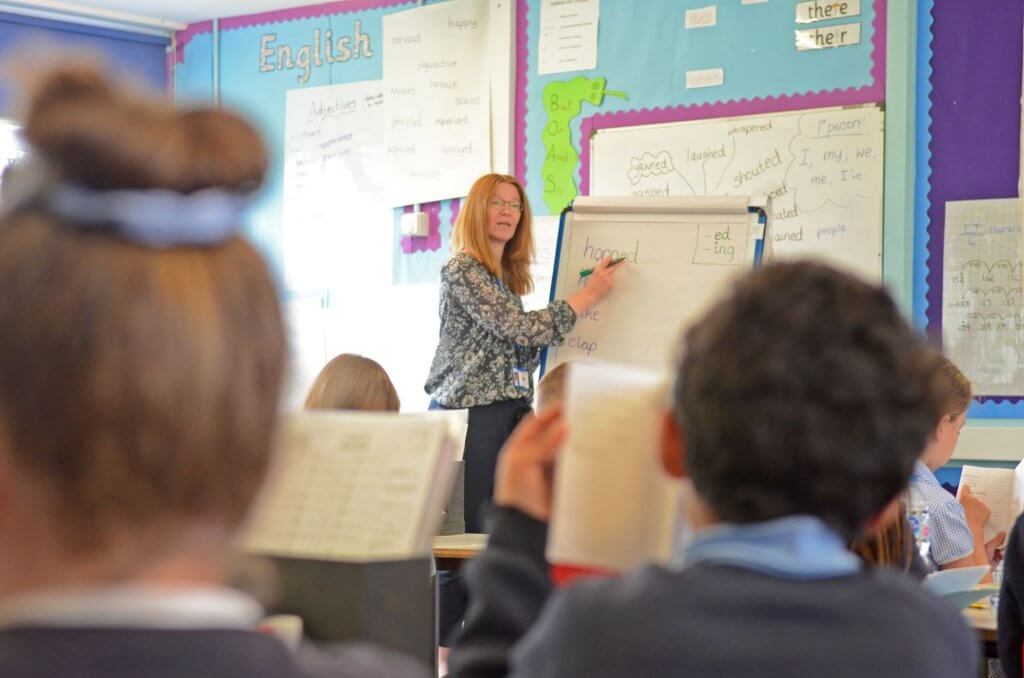Calls for the government to address burnout amongst teachers
In a joint letter, the Chartered College of Teaching (CCT) and Education Support have written to the education secretary, urging the government to take urgent action in response to the growing mental health crisis amongst teachers.
Together, Dame Alison Peacock, CEO of the CCT, and Sinead Mc Brearty, Chief Executive of Education Support, point to research which shows teachers have had consistently lower wellbeing compared to the general population for the last five years, reporting higher rates of workplace stress, depression and anxiety.
Responding to a survey by the CCT, over 1,000 teachers outlined the particular strains and pressures of their roles. Almost half said that preparation for Ofsted inspections was a major source of stress. Other issues included administrative tasks that have no impact on student learning; a lack of support staff; and the introduction of new initiatives and expectations during the academic year without proper planning and support.
‘Evidence repeatedly shows that no one does their best work when they are significantly stressed or burned out. In this case, the effects are felt by pupils,’ the letter states. The CCT recommends several strategies to promote teacher wellbeing, such as increasing time allocated for Planning, Preparation and Assessment (PPA) as well as putting a greater focus on professional development. But as the cost-of-living crisis intensifies, the CCT and Education Support urge the government to act now ‘to address the drivers of distress.’
This comes after teacher vacancies rose by almost two-thirds in September. At the same time, headteacher turnover rates have increased significantly, as one in ten schools welcomed a new head in the last month. Geoff Barton, general secretary of the Association for School and College Leaders, comments that ‘teachers and leaders are being asked by the government to do more for less, and that is clearly an unsustainable situation.’
KS4 data reveals widest disadvantage gap in a decade
This week, the Department for Education (DfE) published Key Stage 4 performance data for the 2021/22 academic year. Almost half of all pupils achieved grade 5 or higher in English and maths, increasing by 6.4 percentage points since before the pandemic. Whilst this figure decreased slightly compared to 2020/21, the DfE says that this was expected, ‘given Ofqual’s approach to grading for 2022 exams which broadly reflected a midpoint between results in 2019 and 2021.’ Similarly, the average Attainment 8 score of all pupils came to 48.7, rising above pre-pandemic levels.
However, following similar trends in other key stages, the attainment gap between disadvantaged pupils and their peers has increased, rising to its largest level in ten years.
The disadvantage gap index had been steadily increasing before the pandemic. When centre-assessed grades replaced exams in 2020, the index narrowed slightly, before increasing again the following year. Now it stands at 3.84, the widest it has been since 2012, when it stood at 3.89.
Sir Peter Lampl, founder and chairman of the Sutton Trust, says that the new data ‘adds to the overwhelming case that there has to be a step change in what is done to enable young people to recover from the pandemic.’ However, Emily Hunt, Associate Director at the Education Policy Institute, points out that ‘while the pandemic exacerbated inequalities, the attainment gap was already widening prior to 2020 […] we urgently need a cross-government child poverty strategy to address the root causes of disadvantage.’
Education unions ballot members for strike action
The NASUWT teaching union, the NAHT school leaders’ union and the National Education Union (NEU) have each announced that they will ballot members for strike action over the government’s pay proposals. Unions argue that the pay proposals amount to a real-terms pay cut, with teachers’ salaries losing approximately 20 percent of their value since 2010. In the same period, the loss for support staff stands at 27 percent.
Dr Patrick Roach, general secretary of NASUWT, explains that the real-terms pay cut has undermined the morale of school staff, ‘which is fuelling the teacher recruitment and retention crisis.’ Similarly, joint general secretaries of the NEU, Kevin Courtney and Dr Mary Bousted, say that their members ‘have been undervalued for too long. The government’s refusal to fully fund the meagre pay rise for 2022/23 is the final insult.’
Speaking on behalf of his members, Paul Whiteman, general secretary of school leaders’ union NAHT, says that ‘the future of education is on the line.’ With cuts to Local Authority budgets, inflationary costs, rising energy bills, and the lack of funding for teachers’ pay, school leaders across the country feel they cannot continue to run their schools in the current circumstances. This will be the first time that NAHT will ballot its members on industrial action over pay. Whiteman emphasises ‘it is almost unprecedented for the relentlessly reasonable professionals I know our members to be, but we have no choice […] they are telling me they feel compelled to fight for the futures of the children and young people in their care.’
The NEU is the first union to announce a likely date for industrial action, saying strikes may start around the end of January next year. The NEU is the largest education union in the UK, representing more than 450,000 members. With a turnout of 62 percent, indicative ballots showed that 86 percent of teachers said they would vote to strike. If these results are repeated at a formal ballot, then strikes would be approved.
A spokesperson for the Department for Education has said that these plans are ‘incredibly disappointing […] strike action will damage children’s education and disrupt parents’ lives.’ However, in a poll of more than 2,000 participants, 64% of parents said they would support teachers taking industrial action if they were given a below-inflation pay rise.
Teachers are at the heart of education recovery, but in order to support pupils’ learning and development, it is essential to ensure that their own needs are met.
Supporting you with day-to-day and strategic challenges, One Education gives you more time to focus on teaching and learning, helping you to realise the full potential of your staff and your pupils.
Get in touch to find out more.














